Stanley Burton Centre for Holocaust and Genocide Studies
PhD projects
 Dmitri Abrahams
Dmitri Abrahams
The creation, evolution and reception of Holocaust memory in South Africa 1947-2009
The project looks at the complex and under-researched intersections between Holocaust memory and anti-apartheid activism between 1947-2009. Holocaust memory was regularly invoked by the anti-apartheid movement locally and abroad to highlight racial injustices in South Africa. More broadly, the project examines how and why Black South Africans engaged with the Nazi past considering their own suffering and trauma. This research contributes to the literature on Holocaust memory in the Global South, Multidirectional memories and the intersections between the history and memories of mass violence. It questions how did the global anti-apartheid movement invoke the Holocaust/fascism in the battle for freedom?
Kelsey Akers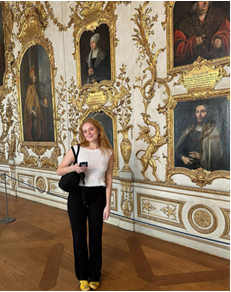
“Stitching a New Life: Holocaust Survivors’ Rehabilitation through Fashion Design in the Post-War Years; 1944-1967”
This thesis examines clothing designed or made by Jewish Holocaust survivors in the post-war years, either in their material form, photographic representations, or oral descriptions to answer the following primary research question: What did fashion design provide for survivors in their rehabilitation (emotionally, physically, and economically) after the war? Through an in-depth examination of material fashion culture designed domestically and commercially, this research project will present a decentralized history encompassing the experiences, often nuanced and complex of both leading actors in the fashion industry and smaller domestic and commercial designers in attempt to further understand survivors’ post-war rebirth into society.
Shawna Browarsky-Quigley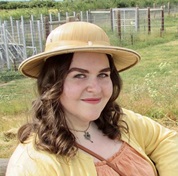
Remembering Genocides Through Graphic Narratives
Supervisor: Dr Maite Usoz De La Fuente, Dr Svenja Bethke, and James Chapman
In modern society, where anyone can produce and publish narratives and perspectives freely, it is imperative that all forms of mass media are considered when thinking about a collective culture and history. Ever since Art Spiegelman's publication of Maus, subsequent comics and graphic narratives have been published detailing personal memories and experiences during major, often traumatic events in history; however, many of these narratives have yet to be explored.
My project focuses on genocides and how they are remembered through the medium of comics and graphic narratives. Using three case studies: the Holocaust, the Rwandan genocide, and the Cambodian genocide, my project aims to examine individually and collectively analyse how each genocide is remembered through a multimodial discourse analysis. Additionally, my research will explore how these narratives interact with "official" versions of history, and, using Maurice Halbwach's concept of "collective memory", examine how these graphic narratives construct a collective memory and history of people who have been impacted by genocide.
This is one of the first major comparative studies in genocide comics and graphic narratives. I will shed light on Rwandan and Cambodian genocide comics which have received significantly less scholarship than Holocaust comics. Aside from furthering the growing fields of comic studies and memory studies, my project seeks to more broadly interrogate what composes our history and why should it matter?
Jim Hulbert
Entangled Spaces: comparing colonial violence on the Indian and Queensland frontiers
Supervisors: Alex Korb, Sascha Auerbach (Nottingham) and David Lambert (Warwick)
Entitled 'Entangled Spaces: comparing colonial violence on the Indian and Queensland frontiers,' this project will take a comparative, entangled approach to British colonial violence, examining imperial sites which have rarely been studied in the same analytical frame. The project will coalesce around several research questions, primarily assessing the extent to which imperial networks facilitated the transfer of ideas of violence between imperial sites, both between colony and colony and metropole and colony. It will also examine the extent of the influence of knowledge transfers from other European imperial sites, and whether it can be said that British colonial violence in India and Australia during the chosen period had a distinct character, despite the geographical separation and differences in administration represented by the respective colonies. In addition, the project will consider to what extent colonial violence in the selected colonies were influenced by trans-imperial transfers and exchanges, alongside evaluating the potential utility of recent and innovative developments in the field of genocide studies to the study of colonial violence in both the settler colony and exploitation colony contexts. Through these research questions, the project can make a contribution to an emerging comparative historiography in British imperial history.
In this project, I propose to use a modified comparative framework encompassing entangled and histoire croisée methodology, comprising the most useful elements of both and contributing to what remains a fledgling historiography; heavy on theory but light on practice. Both these frameworks are a natural fit with the metaphor of imperial networks or webs, that is central to my project, and allow for the idiosyncrasies of the metropole-colony relationship to be explored without relying on terminology referring to the ‘nation state,’ which is unsuitable for the colonial context. There is a growing consensus that the methodologies of empirical comparison and entanglement complement rather than detract from each other; the task of this project is therefore to combine them in practice as well as in theory.
Georgia Parsisson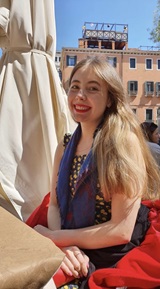
Rwanda: The role played by child perpetrators during the genocide
Supervisors: Dr Zoe Groves, Dr Fransiska Louwagie and Dr Alex Korb
The genocide against The Tutsi and Moderate Hutu swept across Rwanda over approximately one hundred days from April 1994. With an estimated death toll of 850,000-1 million Rwandans, many ordinary people participated in the killing and destruction which swallowed the country. With widespread participation from all Rwandan communities, many perpetrators were children.
My research highlights the cruciality of child perpetrators for the success of the genocide. This project looks to explore the links between the Hutu extremist agenda and the use of child perpetrators, exploring the role children played in the success of the extremist regime. Whist there are strong historical debates around Rwanda, few historians speak in depth about the use of children as perpetrators, instead solely focusing on victims. This thesis aims to bridge this gap within the discussion, allowing new insights into the genocide to be seen.
Utilising testimony, the database of the International Criminal Tribunal for Rwanda and the reports from non-government organisations, this thesis will allow for the history of Rwanda's next generation to be seen in a new light.
Julie Hurst-Whitehouse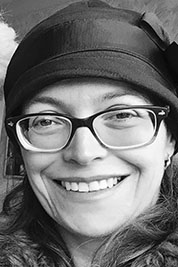
Changing Spaces for Women’s Voices in Oral Histories of Holocaust and Genocide, 1945-2018
Supervisors: Dr Svenja Bethke, Dr Zoe Groves, Dr Clare Anderson and Dr Katherine Stone
My project will explore the historiography that led to the creation of two oral testimonial collections containing witness testimony of women's experience of sexual violence, by drawing on the Rwandan genocide against the Tutis and its aftermath.
Despite advances to how we understand patterns of violence against women during the Holocaust, and in genocide more broadly, studies linking gender and genocide are rare. Furthermore, Non-Government Organisation (NGO) projects contain large quantities of primary testimony, but systematic research on how this testimony has been gathered in an historical context hardly exist.
My thesis chooses an interdisciplinary perspective at the intersection of historical studies, genocide studies, gender and memory by asking:
How effectively can different methodological approaches help women to express the breadth of their experiences through witness testimony, especially when sexual violence is so often stigmatised in surrounding societies?
My research will use an historical framework to assess how women's experience has been articulated through NGO practices in relation to the Rwandan genocide against the Tutsi. In doing so, it will examine how contemporary methodologies used by NGOs, can either constrain or provide opportunities in the dialogue with survivors. Finally, using a sample of testimonies from the collections, it will analyse how women describe their experience of sexual violence during the genocide against the Tutsi, in their own words.
By bringing this work into dialogue with feminist approaches, I will identify how the historical contextualisation of practice-based methodologies enable women to express their experience of sexual violence in genocide, and what such dialogues can add to contemporary thinking on typologies of conflict and non-conflict related sexual violence.
Namak Khoshnaw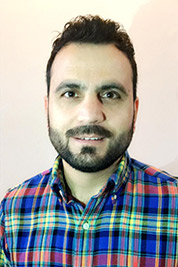
The Filmmaker's Predicament: On ISIS, Media and the Kurdish Genocide
Supervisor: Dr Alexander Korb
During my 6-year practical-based PhD with documentary, I will look at the relationship between documentary and genocide, particularly in reference to the genocide carried out against Iraqi Kurds in the late 1980s and by ISIS against the Yazidi Kurds in 2014.
I started my project in 2013 and have subsequently directed and produced eight documentary films for the BBC. Three of my films were directly related to the genocide - Slaves of the Caliphate, Policeman of Kirkuk and Life on the Rubbish Tip. In these films I tackle the idea of genocide from many different perspectives including the perpetrators, those against whom it is perpetrated, and those working to stop it.
All three films where made in hostile environments when ISIS were at their strongest in Iraq and Syria. It wasn't easy or safe to make those films but, as a victim of genocide in the 1980s
and as a filmmaker in the present day, I was determined that these stories be told. Part of my practice is to ensure that the people of Iraq and around the world do no forget the past.
For my final project I will be submitting the 3 films mentioned, and 25,000 words examining how these films intersect with the modern history of genocide against the Kurds, as well as looking in greater detail at how these films were made. I will also build a website with interviews with interviewees from the films, such as fighters from ISIS and survivors of genocide, and many other oral history testimonies.
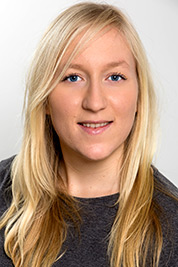 Judith Vöcker
Judith Vöcker
"In the Name of the German Nation" - The German jurisdiction in Warsaw during the German occupation of the General Government (1939-1944)
Supervisors: Dr Svenja Bethke and Dr Klaus Richter
My thesis aims to provide a first comprehensive overview of the German jurisdiction in the General Government and how the Nazi regime instrumentalised it as a political tool in their occupied space. In doing so, I want to investigate how Nazi ideologies and racial premises manifested themselves in their legal sphere, how German law was applied and amended over the time of occupation, and how German judges applied these regulations in court proceedings and verdicts.
The focus lies on the German Court and the Special Court in Warsaw and their verdicts, since they trialed not only Jewish but also Polish and ethnic German defendants. It thereby hopes to show which changes within the juridical entities occurred and whether these were connected to the occupation politics for the General Government or the (un)successful course of the war. To this end, I discuss the occupation politics for the General Government to reveal for which political and strategic purposes it was established. This is supported by a comparison of similar criminal offences committed by Jews, Poles, and ethnic Germans in order to reconstruct the way these German courts treated criminal cases and defendants from all spheres of society—to explore to what extent their verdicts were influenced by their racial ideologies, occupational aims, and the course of the war.
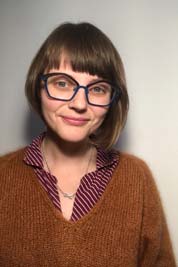 Karianne Hansen
Karianne Hansen
The Nation in the Barrack: Norwegian Experiences and Identity in the Nazi camps, 1942-1945
Supervisors: first, Dr Paul Moore, second, Dr Svenja Bethke
My doctoral project analyses the experiences and identities of Jewish and non-Jewish Norwegian prisoners and their forced movements in the Nazi concentration camps in the years 1942-1945.
While Nazi racial ideology held that Norwegians were members of the ‘Aryan race’, Holocaust historians have yet to examine the existence of a ‘undesirable’ population within this supposed ‘Aryan nation.’ Thousands of Norwegian citizens opposed and fought against the occupation regime and the collaborationist regime of Vidkun Quisling, and many were deported to Nazi camps. Norwegian Jews, on the other hand, were rounded up and sent to Auschwitz as part of the Holocaust. Crucially, Norwegian collaborators aided and abetted the Nazis in their deportation of Jews from Norway to Auschwitz.
By following their forced displacement from occupied Norway to the camp system, this thesis is an innovative exploration of different groups of victims their divergent histories and memories of imprisonment. By demonstrating how these individuals dispersed across the camp system, my study showcases the diverse ways in which ‘Norwegianness’ and Jewishness was expressed at the heart of the Nazi project. Utilising a transnational methodological lens to show that is precisely in the camp spaces where these groups of individuals deported from Norway encountered each other and constructed their sense of self in the context of Nazi racial ideology, nationality, and complex social hierarchies.
My thesis will contribute to the growing body of literature on the history of everyday life and social dynamics in camp societies. A study of Norwegian Jews is a case in how historians of the Holocaust should approach peripheral victim groups. Finally, by exploring the multifaceted identities of concentration camp prisoners my thesis contributes to the social history of Nazi persecution, going beyond narrowly framed national histories.
 Betsy Inlow
Betsy Inlow
Use of Holocaust Graphic Narratives within Museums
Supervisors: Alex Korb (History) and Sheila Watson (Museum Studies)
Since the publication of Art Speigelman’s Maus in 1980, the graphic narrative has become a popular medium for engagement with difficult histories such as the Holocaust. These Holocaust graphic narratives have become common in education programmes including within museums, with many museums creating their own Holocaust graphic narrative projects. This thesis aims to discover the motivations and goals behind museum use of Holocaust graphic narratives in order to understand why the Holocaust graphic narrative has become so prevalent within the sector and how this might inform future practice.
This thesis presents a collective case study of eight museums from Canada, Germany, the Netherlands, and the United States, each of which have used, currently use, or propose to use Holocaust graphic narratives. The primary data of semi-structured interviews with museum educators is bolstered by an investigation of the museums’ Holocaust graphic narrative projects themselves, official museum literature, on-site content, and in-house evaluations.
There is significant overlap in the motivations and goals of the museums across the collective case study, both in terms of overarching, institution-wide goals and goals relating specifically to Holocaust graphic narrative use. Notably, the three main themes within museum Holocaust graphic narrative use gathered from the data - storytelling, community engagement, and accessibility – all reflect the wider missions of the museums within the collective case study.
This interdisciplinary research adds to the knowledge of the fields of Holocaust Studies, Museology, and Comics Studies. As more and more Holocaust graphic narratives continue to be created in the museum sector and beyond, this thesis not only provides insight into an under-researched area, but also, using a melding of theory and practice as extrapolated from the collective case study, offers practical suggestions into the educational use of these resources.
Paul O’Shea
Friendship between male prisoners in Dachau, Mauthausen, and Sachsenhausen
Supervisors: Dr Paul Moore and Dr Svenja Bethke
My PhD will be the first systematic study of friendship between male prisoners in Nazi concentration camps (Konzentrationslager; KL). The study will demonstrate the importance of masculinity in the relationships of German, Austrian, and Spanish men and will shed new light on prisoner survival strategies, agency, power dynamics, and gendered relationships in extremis.
My research questions build from the premise that culture and conditions are highly influential on friendships, as has convincingly been demonstrated by scholars in various fields: what constituted friendship, how were friendships performed behaviourally, and how was friendship experienced emotionally in the KL?
The primary sources on which this study is based are memoirs and video interviews of survivors of Dachau, Mauthausen, and Sachsenhausen, which will be scrutinised for evidence of behaviours indicative of close bonds. Interdisciplinary literature is vital in identifying these behaviours as most scholars accept that there are gendered differences in the performance of friendship. It is important therefore, that historians studying friendship in the KL are sufficiently familiar with the research of gendered friendship performance, before analysing their primary sources. Serious engagement with primary sources, supported by the specialist literature on gender, friendship, and emotions, can help identify common indicators of bonds and intimacy among male prisoners, who might ordinarily not express such sentiments openly.
Robin Smith
'The crucifixion of the mind of youth': the responses of British teachers to education in the Third Reich
Supervisors: Dr Paul Moore and Professor Elizabeth Harvey (University of Nottingham)
My project, supported by the AHRC-funded Midlands 4 Cities Doctoral Training Partnership, explores the responses of the British teaching profession to the development of German school Education under the Nazi dictatorship. The radical changes brought about by the Nazi regime as it warped the German education system to become a tool in the dissemination of Nazi ideology were viewed with alarm internationally, where the German education system had been held in high regard prior to the Nazi seizure of power. Analysing the responses of teaching organisations, individuals and émigré networks will enable an assessment of the sources of information about Nazi schooling that reached Britain, an evaluation of British teachers’ diagnoses of the impact of Nazified schooling on German teachers and pupils, and an examination of how British teachers’ own preoccupations with militarism, propaganda and the politicisation of classroom education informed their responses to the situation in Germany.
The thesis will also examine the variety of practical responses undertaken by these actors to the situation in Germany, ranging from raising public awareness to providing practical support for teachers suffering persecution in Nazi Germany or arriving as refugees in Britain. These activities will be placed in the context of wider transnational antifascist activism and pre-existing professional networking, and the sometimes-mixed motives and conflicting agendas involved in mobilising British teachers to respond to the situation in German schools will be explored. Through these responses, the thesis will ask how far the view from Britain of German schooling influenced wartime discussion and decisions regarding post-war educational reconstruction in the face of what one academic described as ‘the crucifixion of the mind of youth by ruthless and ingenious tyranny’ (Lascelles Abercrombie, 1935).
 Nick Walton
Nick Walton
The German Civil Service from the Kingdom of Prussia to the Federal Republic of Germany: the historical development of the service, its principles, and its loyalties
Supervisor: Dr Paul Moore, Dr Svenja Bethke
My research project focusses on how the German Civil Service, originally an instrument of the monarch and state, has developed since its formation more than 200 years ago. In doing so, it explores whether a coherent set of guiding principles is attributable to the German Civil Service, and how changing political, social, and economic circumstances could have influenced their development. Further, in so far as civil servants traditionally owe loyalty exclusively to the state but are today expected to serve the public, a possible conflict of loyalty is investigated.
This research is linked to the work of the SBC particularly because civil servants were both victims of and willing accomplices to the crimes perpetrated by the National Socialists. The relationship between the German Civil Service and the National Socialists was therefore a complicated one. The German Civil Service is firmly rooted in law(s) and civil servants are taught to require a legal basis for every action to be taken (Rechtsgrundlage), which had disastrous consequences once the National Socialists adapted the existing laws to make the civil service the executor of party policy. Accordingly, from 1937 onwards at the latest, the German Civil Service could no longer be compared with its predecessor in the previous Weimar period, which it now resembled only in name, as was demonstrated by its actions in the coercive, and simultaneously collaborative, relationship between the National Socialists and the German Civil Service.
As an employee in the German public sector and having myself been appointed a civil servant in March 2021, I am interested in contributing to the understanding of the development of the German Civil Service into today’s modern institution.